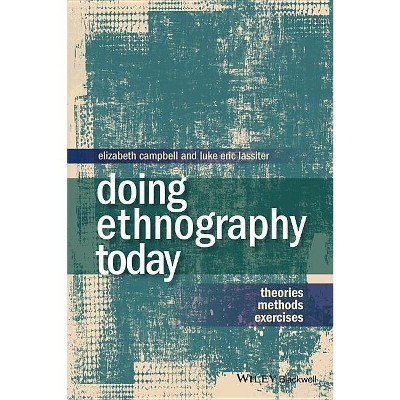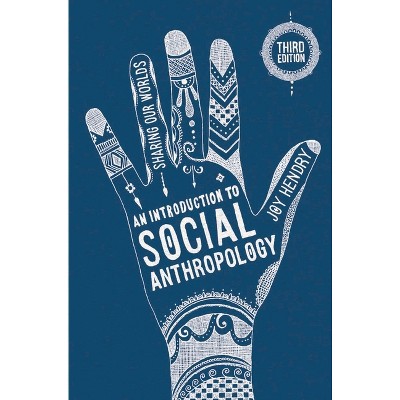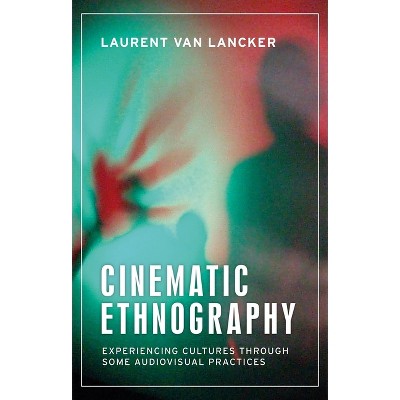New Invitation to Anthropology - 5th Edition by Luke Eric Lassiter & Eric I Karchmer & Dana E Powell (Paperback)

About this item
Highlights
- Born within and against the violence of European colonial conquest, anthropology has aspired to understand the diversity of human experience in ethical and transformative ways.
- About the Author: Luke Eric Lassiter is professor of humanities and anthropology and director of the Graduate Humanities Program at Marshall University, where he is also a Distinguished John Deaver Drinko Academy Fellow.
- 276 Pages
- Social Science, Anthropology
Description
About the Book
A critical and comparative approach that teaches students to think like anthropologistsBook Synopsis
Born within and against the violence of European colonial conquest, anthropology has aspired to understand the diversity of human experience in ethical and transformative ways. The New Invitation to Anthropology is a fresh and accessible text that takes students to the heart of the discipline and reveals the ongoing relevance of anthropology today.
The New Invitation to Anthropology, Fifth Edition has an intimate touch that invites students in and helps them understand the historical roots of anthropology and its connection to recent social and political issues. Part I covers the history of the discipline, the emergence of the concept of culture, and ethnographic field methods in relation to European imperialism and discourses on race. Part II illustrates how the concept of culture shaped specific domains of anthropological study, including ecological adaptation, social class, gender, family, marriage, religion, and medicine.As a timely and engaging "non-textbook," The New Invitation to Anthropology explores anthropological perspectives on real-world problems, helping students think like anthropologists and become better citizens of the world.
New To This Edition
- Significantly revised Chapter 1, "The Origins of North American Anthropology," demonstrates how modern anthropology emerged out of 19th century theories of race and social evolutionism and develops critical understandings of modern forms of racism
- New sections on social class and globalization in Chapter 4 offer insights into the complexities of modern global problems like climate change
- New elaborations of intersectionality in Chapter 5, "Sex, Gender, and Inequality" reinforces discussions of gender-based inequality
- Chapter 7 on religious experience now incorporates healing and medicine to expand a framework of studying belief and experience
Review Quotes
Every revised edition of Invitation to Anthropology recasts an excellent textbook into an even better resource. This new edition preserves the readable style of the past four versions while adding updated content, provocative discussion questions, and excellent teaching resources. Many of the text boxes, graphics, and other additions could easily serve as the basis for entire class periods of instruction to enhance students' understanding of each chapter.
Keeping its clear and accessible writing style, The New Invitation to Anthropology continues to be the most pedagogically useful introductory text I have ever found. I cannot overemphasize how effective it is to teach its deep concepts, relying on the story-driven approach of this remarkable book.
About the Author
Luke Eric Lassiter is professor of humanities and anthropology and director of the Graduate Humanities Program at Marshall University, where he is also a Distinguished John Deaver Drinko Academy Fellow. His books include The Other Side of Middletown, The Chicago Guide to Collaborative Ethnography, Doing Ethnography Today, and I'm Afraid of that Water: A Collaborative Ethnography of a West Virginia Water Crisis.
Eric I. Karchmer is a visiting assistant professor at China Medical University in Taichung, Taiwan. He is also a trained practitioner of Chinese medicine, with more than 20 years of clinical experience. He is the author of Prescriptions for Virtuosity: The Postcolonial Struggle of Chinese Medicine.
Dana E. Powell is associate professor in the Graduate Institute of Humanities in Medicine, at Taipei Medical University (Taiwan). She is the author of Landscapes of Power: Politics of Energy in the Navajo Nation and has been a recipient of anthropological fellowships from the Wenner-Gren Foundation, the National Science Foundation, Cornell Univ. Society for the Humanities, and the Taiwanese Ministry of Science and Technology.
Shipping details
Return details
Trending Non-Fiction











